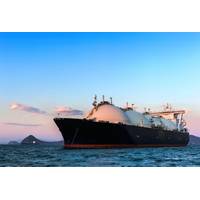EU Abandons 'Dirty' Label for Canada Tar Sands Oil
- Canada lobbied against previous labelling proposal
- Policy includes method for distinguishing various fuels
- Member states to debate the proposal
A European Union plan to label Canadian tar sands oil as highly polluting as part of its fight against climate change has been abandoned after years of opposition from Canada, clearing the way for exports of tar sands crude to the European market.
A proposal published by the European Commission on Tuesday removes what could have been an EU obstacle to shipments of the crude and comes at a time when tensions between the EU and its top oil supplier, Russia, are running high.
EU sources, speaking on condition of anonymity, said that given the situation with Moscow, the desire for a trade deal with Canada had been a factor in the commission's move to remove the "dirty oil" tag.
Canada and the EU have been working on a trade deal for several years. EU officials have said a final pact is expected to be signed next year and become effective in 2016.
The commission also had been lobbied heavily by Canada and Canadian allies such as the United Kingdom. Canada sees Europe as a potential market for rising production from the tar sands of northern Alberta, the world's third-largest crude reserve.
"It is no secret that our initial proposal could not go through due to resistance faced in some member states," EU Climate Commissioner Connie Hedegaard said in a statement
Instead of singling out Canadian oil sands crude as highly polluting, the commission's new proposed fuel quality directive (FQD) requires refiners to report an average emissions value of the feedstock used in the products they produce. The proposal confirms a draft seen by Reuters in June.
"We support the FQD's intent to reduce transportation emissions, but believe it should be based on science and the facts," Canadian Natural Resources Minister Greg Rickford said in a statement on Tuesday.
Extracting tar-like bitumen from the oil sands requires digging in open-pit mines or blasting with steam and pumping it to the surface, meaning it uses more water and energy and emits more carbon dioxide than conventional crude production.
Canada currently exports minimal amounts of tar sands crude to Europe. TransCanada Corp, however, is proposing a C$12 billion ($10.7 billion) Energy East pipeline that by 2018 would take 1.1 million barrels per day of Western Canadian crude to Atlantic ports, from which it could be shipped to European refineries.
Canadian oil companies have already taken tentative steps toward accessing the European market. Last month, Suncor Energy Inc, Canada's largest tar sands producer, shipped its first ever tanker of Western Canadian crude to Europe from the country's east coast.
The European market for heavy crudes from the oil sands would not be large, analysts say, representing just 485,000 barrels per day in a refining market that processes imports of about 10 million barrels daily. The heavy crude market is currently supplied by Mexico and Venezuela.
"It's not a very big part of the market," said Jackie Forrest, vice-president at ARC Financial Corp. "But there is a market there that can accept heavy crudes and, when you think about transportation distances ... it's pretty economic to ship crude there compared with the Venezuelans and Mexicans."
The European Commission's revised plan still proposes a method to assess the pollution levels of various fuel types over their life cycles and the commission said it would propose action if these were incompatible with climate goals.
"The commission is today giving this another push, to try and ensure that in the future, there will be a methodology and thus an incentive to choose less-polluting fuels over more polluting ones like, for example, oil sands," Hedegaard said.
Environmental campaigners and green politicians criticised what they saw as a step backwards. Greenpeace accused the European Commission under outgoing President Jose Manuel Barroso of putting trade deals ahead of the environment.
"This should be a lesson to (Commission President-elect Jean-Claude) Juncker and his team. Public opposition will only intensify if he allows trade deals to be used to undermine the EU's environmental legislation," said Greenpeace EU energy and transport policy director Franziska Achterberg.
Oil sands crude is produced by oil majors such as BP, Royal Dutch Shell and ExxonMobil and production from the region is expected to rise by nearly 70 percent to 3.2 million barrels per day by 2020, according to industry forecasts.
In the context of the Ukraine crisis and concerns about Europe's energy security, Canada had argued that Europe should embrace it as a secure source of oil.
European refining lobby group FuelsEurope welcomed the new proposal as "a simple and effective methodology" that would help safeguard the sector's competitiveness.
EU member states will now debate the proposal under a fast-track procedure meant to take less than two months. It will also require a sign-off from the European Parliament.
($1=$1.12 Canadian)
(By Barbara Lewis and Scott Haggett, Additional reporting by Scott Haggett in Calgary; Editing by Jason Neely, Jeffrey Hodgson and Peter Galloway)


